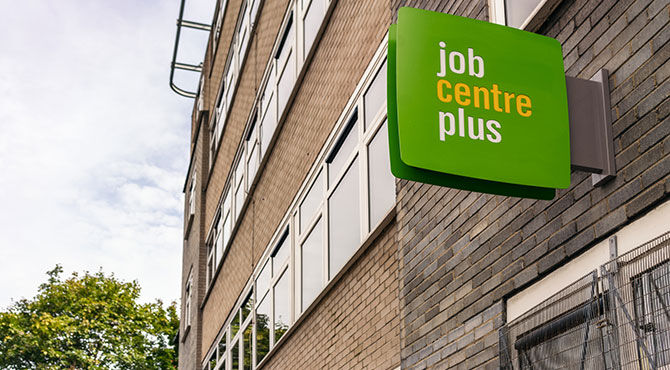UK unemployment rises...but so does jobs total
Latest figures show unemployment grew in the final stages of 2017, however commentators suggest it could be a blip as the total of people in work continued to increase.

 21 February 2018
21 February 2018People in work continues to increase
Data from the Office for National Statistics (ONS) also showed that the number of people in work increased by 88,000 to 32.1 million. The number of workers from outside the EEA declined to 1.17 million in December, 68,000 fewer than a year earlier.Matt Hughes, ONS statistician, said, “While this is the sharpest increase in the unemployment level ONS has seen in almost five years, the number of people in work has continued to rise and there are fewer economically inactive people.“Rising employment this past year was largely driven by UK nationals. In particular, fewer citizens from eastern European countries were in work than in the year before. It’s important to remember these figures simply look at the number of people in work, and aren’t a measure of migration.”Employment Minister Alok Sharma said, “High employment rates are a reliable feature of today’s economy – and this is an incredible achievement. It is equally important that, across society, everyone has the opportunity to get a good job, and get on in life.“Today’s figures show that this government is building a fairer economy that supports people from all backgrounds to get into work. We are closing the BAME and gender employment gaps, and people across the country are accessing new opportunities.”Related stories:
- Edinburgh ‘top city for inward investment appeal’
- UK manufacturers upbeat despite growing skills shortages
- Services leads way in boosting UK economy – BDO
Unemployment growth a warning rather than a crisis
Ian Brinkley, acting chief economist at the Chartered Institute of Personnel and Development, commented, “The substantial and unexpected rise in unemployment is a clear warning that the UK labour market may be running out of steam, but there are reasons to believe that this is a one-off, as opposed to the beginning of a larger employment crisis.“There has still been a significant rise in employment dominated by an increase in full-time, permanent jobs, while some of the rise in unemployment may be attributed to more students entering the labour market.“The strengthening of wage growth is also a welcome sign as, when coupled with likely falls in inflation, it opens up the possibility of real wage growth in the coming months, which will be a great relief to those workers who have seen their pay packets squeezed for months on end.”John Hawksworth, chief economist at PwC, added, “There was an unexpected rise in unemployment between the third and fourth quarters of 2017, but closer inspection suggests this is not a sign of labour market weakness as it was also accompanied by a healthy rise in total employment, focused on full-time jobs.“Instead, it reflects more previously inactive people seeking work, some of them finding jobs and others still searching and so being classified as unemployed.”Mixed picture of the jobs market
Geraint Johnes, professor of economics at Lancaster University Management School, said the ONS data represented a mixed picture of the jobs market. “The increased unemployment has been quite uneven across the UK, with marked increases in Wales, Scotland and the East but falls in some other regions. Meanwhile, across the UK the number of workers in employment also increased, as a result of a fall in the numbers who are economically inactive,” he said.Equal pay concerns
A report from the government’s Equalities Office showed that 84 per cent of large organisations in the UK are paying male staff members more than women on average.Based on returns from more than 1,000 businesses and civil authorities with more than 250 staff, the report said 908 were paying men more than women, compared to 143 who were paying female employees more than their male counterparts.Only 30 organisations – three per cent – reported no difference between the sexes.
For related news and features, visit our Enterprise section. Look out for the launch of 2018’s Relocate Awards, entry is now open. Relocate’s new Global Mobility Toolkit provides free information, practical advice and support for HR, global mobility managers and global teams operating overseas.
 Access hundreds of global services and suppliers in our Online Directory
Access hundreds of global services and suppliers in our Online Directory
©2024 Re:locate magazine, published by Profile Locations, Spray Hill, Hastings Road, Lamberhurst, Kent TN3 8JB. All rights reserved. This publication (or any part thereof) may not be reproduced in any form without the prior written permission of Profile Locations. Profile Locations accepts no liability for the accuracy of the contents or any opinions expressed herein.




























